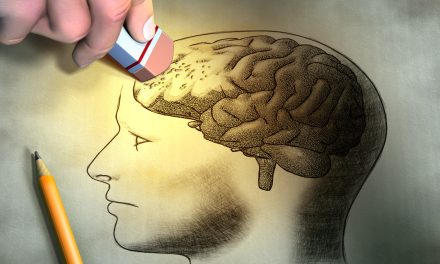As people age, many worry about memory decline and its impact on daily life.
Memory loss, while common, doesn’t have to be inevitable.
Engaging in mental and cognitive exercises, such as puzzles or learning new skills, can sharpen the brain and delay cognitive impairment.
Physical activities, like walking or swimming, also boost brain health by improving blood flow and reducing the risk of memory-related diseases.
Nutrition plays a crucial role in maintaining memory.
A balanced diet rich in antioxidants, omega-3 fatty acids, and vitamins can protect the brain and support cognitive function.
Emotional well-being should not be overlooked, as stress can adversely affect memory.
Maintaining strong social connections and seeking help when needed are key strategies in staying mentally fit and engaged.
Regular health check-ups are important for early detection and management of any cognitive decline.
Quality sleep, too, is vital as it enhances memory consolidation and cognitive recovery.
By incorporating these practices, seniors can promote healthy aging and preserve their mental faculties.
Key Takeaways
- Mental and physical exercises support brain health.
- Proper nutrition and sleep help preserve memory.
- Regular check-ups ensure early detection of issues.
Understanding Memory and Aging
As people age, changes in memory can occur. It’s important to know how normal aging differs from more serious memory conditions like mild cognitive impairment (MCI) and dementia.
Differentiating Normal Aging from Memory Loss Conditions
Normal aging often includes some forgetfulness, like occasionally misplacing keys or forgetting a name. This is a natural part of getting older and doesn’t severely impact daily life.
By contrast, conditions such as MCI or dementia involve more than standard memory lapses.
Mild cognitive impairment features memory problems that are noticeable but not severe enough to interfere significantly with daily activities.
Dementia, including Alzheimer’s Disease, presents with marked memory loss, confusion, and difficulty with thinking and reasoning, greatly affecting a person’s ability to function independently.
In normal aging, memory issues tend to be minor and manageable. However, if someone finds it increasingly difficult to perform familiar tasks or maintain conversations, further evaluation may be necessary.
Key Symptoms of MCI and Dementia
Symptoms of MCI can include frequent memory lapses, struggling to remember appointments, or having difficulty finding words. These changes are often noticeable to the person experiencing them and those around them.
With dementia, memory loss is more severe and persistent.
Individuals may repeat questions, become lost in familiar places, or have increased trouble handling money or paying bills.
Alzheimer’s Disease is a common form of dementia characterized by neglecting personal care and safety.
It’s crucial to consult a healthcare professional if these symptoms appear, as early intervention can help manage and slow progression. Recognizing these symptoms can lead to timely support and improved quality of life.
The Importance of Mental and Cognitive Exercises
Engaging in mental and cognitive exercises plays a significant role in preventing memory loss in seniors. Regular activities can promote memory improvement and enhance cognitive functioning, reducing the risk of cognitive decline.
Mental Stimulation Strategies
Mental exercises are crucial for keeping the brain active.
Activities like puzzles, reading, and learning new skills can challenge the mind. He or she might also find interest in strategy games or word problems.
These tasks stimulate mental processes, which are important for enhancing memory and cognitive abilities.
Social activities, such as discussions and group classes, can further encourage mental engagement.
Participating in new experiences helps create fresh neural connections, supporting overall brain health.
Establishing a routine with these stimulating tasks can be a simple yet effective approach to preserve memory and cognitive skills.
Benefits of Cognitive Functioning Activities
Cognitive activities support brain health by improving various mental processes.
They can help mitigate memory issues and slow down cognitive decline.
Activities such as memory games or learning a musical instrument challenge the brain and encourage mental flexibility.
Research indicates that consistent cognitive engagement boosts brain function, leading to better memory retention.
Seniors participating in cognitive training have shown improvements in problem-solving and information processing.
It is essential to select activities that are enjoyable and challenging, as this increases the likelihood of continuing the practice, ensuring lasting benefits for both memory and cognitive functioning.
Physical Exercise and Brain Health
Regular physical activity is vital for maintaining brain health in seniors. Exercise improves blood flow to the brain and supports cognitive function. By including different types of exercise, seniors can enhance their memory and overall mental well-being.
Types of Physical Exercise for Seniors
There are several types of physical exercise that are beneficial for seniors.
Aerobic exercises, like walking or swimming, are popular because they increase heart rate and boost blood flow to the brain, supporting cognitive health.
Strength training helps maintain muscle mass and supports balance, reducing fall risk.
Flexibility exercises, such as yoga or tai chi, improve mobility and decrease stress, contributing to better mental health.
Seniors should choose exercises that suit their abilities and preferences to maintain consistency and enjoyment.
The Role of Exercise in Enhancing Cognitive Function
Exercise plays a crucial role in enhancing cognitive function by stimulating increased blood flow to the brain.
This boost in circulation supports the growth of new brain cells and improves connectivity between them.
Engaging in regular physical activity can delay the onset of cognitive decline and reduce the risk of conditions like dementia.
For instance, older adults who engage in moderate exercises like walking regularly show improvements in memory and executive functions.
Participating in group fitness activities may also provide social interactions, further benefiting mental well-being.
Emphasizing a balanced routine of aerobic, strength, and flexibility exercises can help seniors maintain cognitive health longer.
Nutrition’s Role in Memory Preservation
A nutritious diet can play a vital role in maintaining memory, especially as people age. Certain nutrients support brain function by nurturing neurons and aiding cognitive processes.
Brain-Boosting Foods
Incorporating foods high in omega-3 fats, like salmon and walnuts, can be beneficial for brain health.
Omega-3s help in building cell membranes in the brain and enhance cognitive function.
The Mediterranean diet, rich in fruits, vegetables, whole grains, and healthy fats, has been linked to slower cognitive decline.
Choline, found in eggs and lean meats, is essential for neurotransmitter synthesis, which aids memory.
Vitamins such as vitamin B12 are crucial for maintaining healthy nerve cells and preventing cognitive impairment. Dairy products and fortified cereals are good sources of vitamin B12.
The Influence of Diet on Cognitive Health
Diet significantly influences cognitive health and can help delay memory decline.
Foods high in antioxidants, such as berries and leafy greens, protect the brain from oxidative stress. Antioxidants are known to support neuronal health and function.
Adequate protein intake is also crucial, as it provides the amino acids necessary for neurotransmitter production.
Including lean protein sources like chicken, fish, and beans can enhance brain performance.
Caloric restriction has been shown to improve memory performance in the elderly, potentially extending cognitive vitality.
Regular inclusion of brain-supporting foods can offer long-term memory benefits.
The Impact of Sleep on Memory
Sleep plays a crucial role in protecting memory, including both short-term and long-term types. Adequate rest can help maintain cognitive function in seniors by addressing sleep issues and promoting restful sleep.
Addressing Sleep Problems in Seniors
Seniors often face sleep problems that can affect memory function. Issues like insomnia, sleep apnea, and restless leg syndrome are common. These problems can disrupt the sleep cycle, leading to poorer cognitive performance.
It’s important for seniors to identify and address these issues.
Consulting a healthcare provider can help diagnose sleep disorders. Treatment might involve medications, lifestyle changes, or the use of sleep aids.
A consistent sleep schedule is vital. Going to bed and waking up at the same time every day can foster better sleep habits.
Light exposure during the day and limiting naps can also improve sleep quality.
A dark, comfortable, and quiet sleeping environment supports deeper sleep stages.
Regular exercise, stress management, and reducing screen time before bed are additional strategies that might alleviate sleep problems and enhance memory.
Promoting Restful Sleep for Cognitive Resilience
Restful sleep is essential for memory processes, including the formation and consolidation of new information.
During sleep, the brain organizes and stores memories, enabling seniors to recall information more effectively.
Lack of restful sleep can hinder these functions, affecting both short-term and long-term memory.
To promote restful sleep, a bedtime routine can be beneficial.
Engaging in relaxing activities before bed, such as reading or meditating, can signal the body that it’s time to wind down.
Avoiding large meals or caffeine close to bedtime can prevent sleep disturbances.
Encouraging mental activities during the day supports cognitive resilience as well.
Practices like puzzles, games, or learning new skills keep the brain engaged. Combined with proper sleep hygiene, these methods can help protect and sustain memory performance in seniors.
Professional Healthcare and Monitoring
Seniors experiencing memory challenges often benefit from timely professional healthcare intervention and regular monitoring. Early consultation with specialists like neurologists can help identify underlying medical conditions. Additionally, exploring memory care support options ensures seniors receive the appropriate assistance.
When to Consult a Neurologist
A neurologist specializes in diagnosing and treating disorders affecting the brain and nervous system. Seniors should consider consulting one if they notice persistent memory loss, sudden changes in cognitive ability, or difficulty with problem-solving. These can be early signs of conditions like Alzheimer’s or other forms of dementia.
Medical conditions that may affect memory include strokes, Parkinson’s disease, and depression.
A neurologist can use tools like MRIs and cognitive tests to assess the situation.
Early diagnosis can lead to a more effective treatment plan. This allows for potential intervention before more severe symptoms develop, helping to maintain a better quality of life.
Memory Care and Support Options
For those who need additional support, several memory care solutions are available.
These options offer specialized environments designed to help individuals with memory-related conditions.
Memory care facilities provide structured routines, engaging activities, and personalized care plans. These can improve social interactions and cognitive functioning.
Many facilities employ trained health care providers experienced in dementia care. They focus on creating safe and supportive spaces for seniors.
Beyond facilities, in-home care services are also available. These give seniors assistance without leaving their home.
Some families may opt for respite services, offering temporary care for their loved ones while family members rest.
These resources ensure seniors receive both the physical and emotional support they need, encouraging a more comfortable living experience.
Emotional Well-Being and Memory Health
Emotional well-being plays a significant role in memory health in seniors. Managing stress and recognizing the link between depression and memory loss can help improve mental function and reduce forgetfulness.
Managing Stress and Anxiety
Stress and anxiety can greatly impact short-term memory and overall mental function. When individuals feel stressed, the body’s response can interfere with the ability to store and recall information.
Seniors often face stress related to health concerns, loss of loved ones, or lifestyle changes.
Effective stress management techniques can include activities such as exercise, which helps release endorphins that improve mood.
Meditation and deep breathing exercises provide tools to calm the mind and reduce anxiety levels.
Social interactions and participation in community activities can also serve as valuable outlets for managing stress in daily life.
Understanding the Link Between Depression and Memory Loss
Depression is known to impact cognitive abilities, leading to memory issues including forgetfulness and short-term memory loss.
Depression can alter brain function, making it harder for seniors to concentrate or remember information.
This emotional state might cause chemical changes in the brain that affect memory processing.
Recognizing and treating depression is crucial.
Cognitive-behavioral therapy and appropriate medication can support memory health.
Encouraging engagement in meaningful activities and maintaining social connections can also alleviate the symptoms of depression.
Addressing these emotional challenges not only improves mood but also supports better memory retention and mental clarity.
Staying Informed and Connected
Staying informed on current health topics is crucial for seniors. This means keeping up with research advancements.
Seniors and caregivers should engage with reliable sources to gain insights into age-related health issues. Following updates from trusted organizations can help them stay aware of developments in their health areas.
A support network plays a key role in keeping seniors connected. Participating in community events or joining senior groups can reduce feelings of isolation.
These interactions improve social connections, which are linked to better cognitive health.
Regular email communications serve as a simple way for seniors to maintain connections with friends and family. This method of staying in touch also allows for discussions about managing health.
Emails can include sharing health tips or updates about daily activities.
When dealing with protected health information, it’s vital for seniors to understand privacy practices. Keeping this information safe ensures that their personal details remain secure.
It’s important to choose communication tools that respect privacy standards.
Here’s a quick look at staying informed and connected:
| Activity | Benefit |
|---|---|
| Reading health articles | Stay updated on health topics |
| Joining community groups | Enhance social engagement and combat loneliness |
| Using email | Maintain regular communication with loved ones |
Frequently Asked Questions
There are effective ways to help seniors maintain cognitive health. Diet, exercise, social interactions, and mental activities all play important roles in preventing memory loss.
What are effective strategies to enhance memory retention in older adults?
Effective strategies include establishing a routine, using memory aids like calendars, and staying mentally active through puzzles or crosswords. Keeping a healthy lifestyle with proper sleep and stress management can also contribute to better memory retention.
Can dietary changes help maintain cognitive function in the elderly?
Consuming a diet rich in fruits, vegetables, and whole grains supports brain health. Omega-3 fatty acids, found in fish, are linked to maintaining cognitive function.
The Mediterranean diet is often recommended for cognitive health.
What role does physical exercise play in preventing memory decline in seniors?
Physical exercise improves blood flow to the brain, which can help prevent memory decline. Activities like walking, swimming, or yoga can be beneficial for maintaining cognitive function.
How does social engagement impact memory preservation in the aging population?
Social engagement can lead to better memory preservation. Engaging with others through clubs, volunteer work, or joining community events helps keep the brain active and reduces the risk of cognitive decline, as noted by studies on social engagement.
Are there any specific mental exercises recommended to combat age-related memory loss?
Mental exercises, such as learning a new skill or language, playing musical instruments, or participating in brain-training games, are recommended.
These activities challenge the brain and help maintain its function.
What preventive measures can reduce the risk of developing dementia in the elderly?
Preventive measures include staying physically and mentally active, eating a balanced diet, and maintaining social connections.
Regular medical check-ups to monitor cardiovascular health are also important, as there is a link between heart health and cognitive function.

















